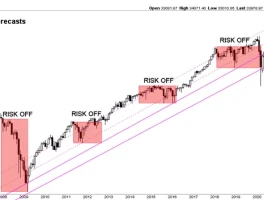The Robots Aren't Taking Our Jobs; They're Taking Our Cookies!
Okay, folks, buckle up because we're diving headfirst into something that's both incredibly mundane and mind-bendingly important: cookie notices. Yes, those annoying pop-ups that plague every corner of the internet. But before you click away, hear me out. This isn't just about digital crumbs; it's about the future of personalization, data privacy, and the very soul of the internet.
The Cookie Conundrum: More Than Just Annoyance
We've all been there: you land on a new website, and bam! A giant notice screams at you about cookies. Do you blindly accept everything? Do you painstakingly customize your settings? Or do you just run screaming for the hills? It's a digital ritual, a frustrating dance we perform daily. But what if I told you that this seemingly trivial interaction is a key battleground in the fight for control over our digital lives?
See, these cookie notices aren't just about compliance; they're about power. They represent the ongoing tension between companies wanting to track our every move (for "personalization," of course) and our right to digital autonomy. And while most people just click "Accept All" without a second thought, I believe this is a critical moment for us to pause and consider what we're giving away. It's like agreeing to a terms and conditions document without reading it, but on steroids.
This NBCUniversal cookie notice, for example, lays bare the sheer scope of tracking involved. Strictly Necessary Cookies, Information Storage and Access, Measurement and Analytics, Personalization Cookies, Content Selection and Delivery Cookies, Ad Selection and Delivery Cookies, Social Media Cookies... It's a veritable buffet of data collection! And while some of these are essential for the site to function, many others are designed to build a detailed profile of your interests, habits, and preferences.
The real question is: are we truly benefiting from this level of personalization, or are we simply being manipulated? Are these "personalized" ads genuinely helpful, or are they just reinforcing our existing biases and creating echo chambers? And perhaps most importantly, are we even aware of the extent to which our data is being collected and used?
And this is where the "Big Idea" comes in: Transparency isn't enough; we need genuine control. We need tools that allow us to easily manage our cookie preferences across all websites, not just one at a time. We need browsers that prioritize privacy by default, not as an afterthought. And we need a cultural shift that values digital autonomy over mindless convenience.

Think of it like the early days of the printing press. At first, it was just a way to mass-produce books, but it quickly became a catalyst for the Reformation, the Enlightenment, and the rise of modern science. Similarly, the internet started as a simple way to share information, but it has evolved into a powerful platform that shapes our thoughts, beliefs, and behaviors. And just as the printing press needed to be regulated to prevent the spread of misinformation, the internet needs to be governed in a way that protects our fundamental rights.
One of the biggest concerns is the use of third-party cookies, which allow companies to track us across multiple websites. These cookies are often used for targeted advertising, but they can also be used to build detailed profiles of our online activity. And while many browsers now offer options to block third-party cookies, it's still up to us to manually configure these settings. Wouldn't it be amazing if browsers had a default setting to block all third-party cookies, unless we explicitly allow them?
When I first read about the extent of cross-device tracking – where companies link your activity across your phone, laptop, and smart TV – I honestly felt a chill run down my spine. It's like living in a world where every device is a potential spy, constantly monitoring our behavior and reporting back to headquarters. It's not just about privacy; it's about freedom. It's about our ability to explore the internet without feeling like we're being watched.
Of course, there are legitimate reasons for companies to collect data. They need to understand how people are using their services, to improve the user experience, and to deliver relevant content. But there's a huge difference between collecting anonymized data for research purposes and tracking individual users for targeted advertising. The former can be beneficial to everyone, while the latter often feels like a violation of our privacy.
And let’s not forget the ethical considerations. As we gain more control over our data, we also have a responsibility to use that power wisely. We need to be mindful of the potential consequences of our choices, and we need to be willing to engage in thoughtful discussions about the future of data privacy. Because, frankly, the tech is moving so fast, we need to be having these discussions now, before it's too late.
We Need a Digital Bill of Rights!
It's time for a new paradigm. It's time for a digital bill of rights that guarantees our fundamental freedoms in the online world. It's time for us to take back control of our data and shape the future of the internet. The robots aren't taking our jobs, but they are taking our cookies—and it's time we fought back!

